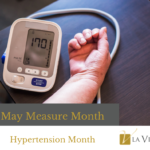- Home
- Locations
- For Individuals
- For Organizations
- CEO Health/Executive Assessment
- Independent Medical Assessments
- Employee Health
- Functional Abilities Evaluation Services
- Functional Medicine Evaluation (FME) Services
- Independent Medical Evaluation (IME) Services
- Job Site Assessment Services
- Labour Market Re-entry Assessment Service
- Neuropsychological Assessment Services
- Non-Medical Summary Services
- Physical Demands Analysis (PDA) Services
- Pre-Employment Medical Services
- Vocational and Employability Assessment Service
- For Diplomats
- About
- Contact
- Home
- Locations
- For Individuals
- For Organizations
- CEO Health/Executive Assessment
- Independent Medical Assessments
- Employee Health
- Functional Abilities Evaluation Services
- Functional Medicine Evaluation (FME) Services
- Independent Medical Evaluation (IME) Services
- Job Site Assessment Services
- Labour Market Re-entry Assessment Service
- Neuropsychological Assessment Services
- Non-Medical Summary Services
- Physical Demands Analysis (PDA) Services
- Pre-Employment Medical Services
- Vocational and Employability Assessment Service
- For Diplomats
- About
- Contact
- Home
- Locations
- For Individuals
- For Organizations
- CEO Health/Executive Assessment
- Independent Medical Assessments
- Employee Health
- Functional Abilities Evaluation Services
- Functional Medicine Evaluation (FME) Services
- Independent Medical Evaluation (IME) Services
- Job Site Assessment Services
- Labour Market Re-entry Assessment Service
- Neuropsychological Assessment Services
- Non-Medical Summary Services
- Physical Demands Analysis (PDA) Services
- Pre-Employment Medical Services
- Vocational and Employability Assessment Service
- For Diplomats
- About
- Contact
- Home
- Locations
- For Individuals
- For Organizations
- CEO Health/Executive Assessment
- Independent Medical Assessments
- Employee Health
- Functional Abilities Evaluation Services
- Functional Medicine Evaluation (FME) Services
- Independent Medical Evaluation (IME) Services
- Job Site Assessment Services
- Labour Market Re-entry Assessment Service
- Neuropsychological Assessment Services
- Non-Medical Summary Services
- Physical Demands Analysis (PDA) Services
- Pre-Employment Medical Services
- Vocational and Employability Assessment Service
- For Diplomats
- About
- Contact
7 Signs It May Be Time to Get Your Thyroid Checked

6 Common Myths About Hypertension and the Truth Behind Them
May 17, 2021
Typical & Atypical Moles: Is Your Mole Normal or Cancerous?
July 16, 2021The thyroid is a small, butterfly-shaped gland, measuring about 2 inches (5 centimetres), located at the base of your neck just below the Adam’s apple. Despite its size, the thyroid gland plays a significant role in our growth, development, and health.
It’s responsible for releasing hormones that regulate almost every bodily function, including your body temperature, heart rate, metabolism, and even breathing. If it starts to malfunction, that tiny 20-ounce gland can cause various serious health complications that can even lead to death.
As leaders in preventive health, we can’t stress enough the importance of having a healthy thyroid, which is why, in support of Thyroid Awareness Month, we’ve decided to create a list of signs that will help you get a hint if it’s time for you to get your thyroid checked.
Slow or Rapid Heart Rate and Palpitations
The health of your thyroid gland has direct effects on your heart. People with hyperthyroidism (an overactive thyroid) experience a harder and faster heartbeat even at rest due to excess thyroid hormones. It can trigger heart palpitations where you feel like your heart is pounding, racing, or fluttering.
While on the opposite side, people with hypothyroidism (an underactive thyroid) experience a relatively slow heart rate. This thyroid disorder can cause the arteries to become stiffer, increasing the strain on the heart, making its functions worse over time, leading to heart failure.
Digestive Problems
You can’t rule out thyroid problems just yet when it comes to the sudden changes in your digestion. For example, if you have low thyroid levels, you’re more than likely to experience a slower metabolism, leading to constipation. On the reverse side, if you have high thyroid levels, your metabolism becomes faster, leading to loose stool and more frequent bowel movements.
While digestive problems can mean many things, you still need to pay close attention to your thyroid, as it is directly connected to your digestive system.
Extreme fatigue or just feeling wiped out
Feeling tired and not having enough energy to get through the day can mean a lot of things. However, it’s a common symptom of hypothyroidism (an underactive thyroid). If you’re having a hard time getting through the day without taking a nap, or you sleep longer than usual but still find it challenging to get up in the morning, then you may be experiencing a decrease in thyroid hormone production.
You always feel hot or cold
Thyroid disorders can prevent the thyroid gland from regulating body temperature. People with an overactive thyroid or hyperthyroidism can cause sensitivity to heat and excessive sweating. And on the opposite side, people with an underactive thyroid or hypothyroidism may struggle to keep warm at all.
Abnormal Menstrual Cycle and Sexual Dysfunction
Thyroid hormones play an essential role in both the male and female reproductive systems. For females experiencing heavy or irregular periods, that may be an underlying thyroid problem as it affects other hormones that play a role in menstruation.
A decline in sex drive for both men and women can also be a sign of thyroid issues because it can drive testosterone down. While testosterone is often thought of by many as a “man’s” hormone, women have it too—men simply have more of it.
Unexplained weight gain or loss
The thyroid gland plays a significant role in regulating our body’s metabolism. If your thyroid isn’t functioning correctly, it can either slow down or accelerate your body’s metabolism.
Swelling in the neck
Based on the thyroid gland’s location, if your neck feels and looks swollen, then it may be a clue that there’s something wrong with your thyroid.
Final word
Signs of thyroid problems are often never appropriately addressed because many people thought that some other problem causes these signs.
More often than not, thyroid issues often go unnoticed until it reaches an advanced stage due to a lack of proper screening and testing.
If you experience these signs, don’t hesitate to contact us for a proper diagnosis. That way, you can help to prevent any of these signs from becoming a severe health issue.





